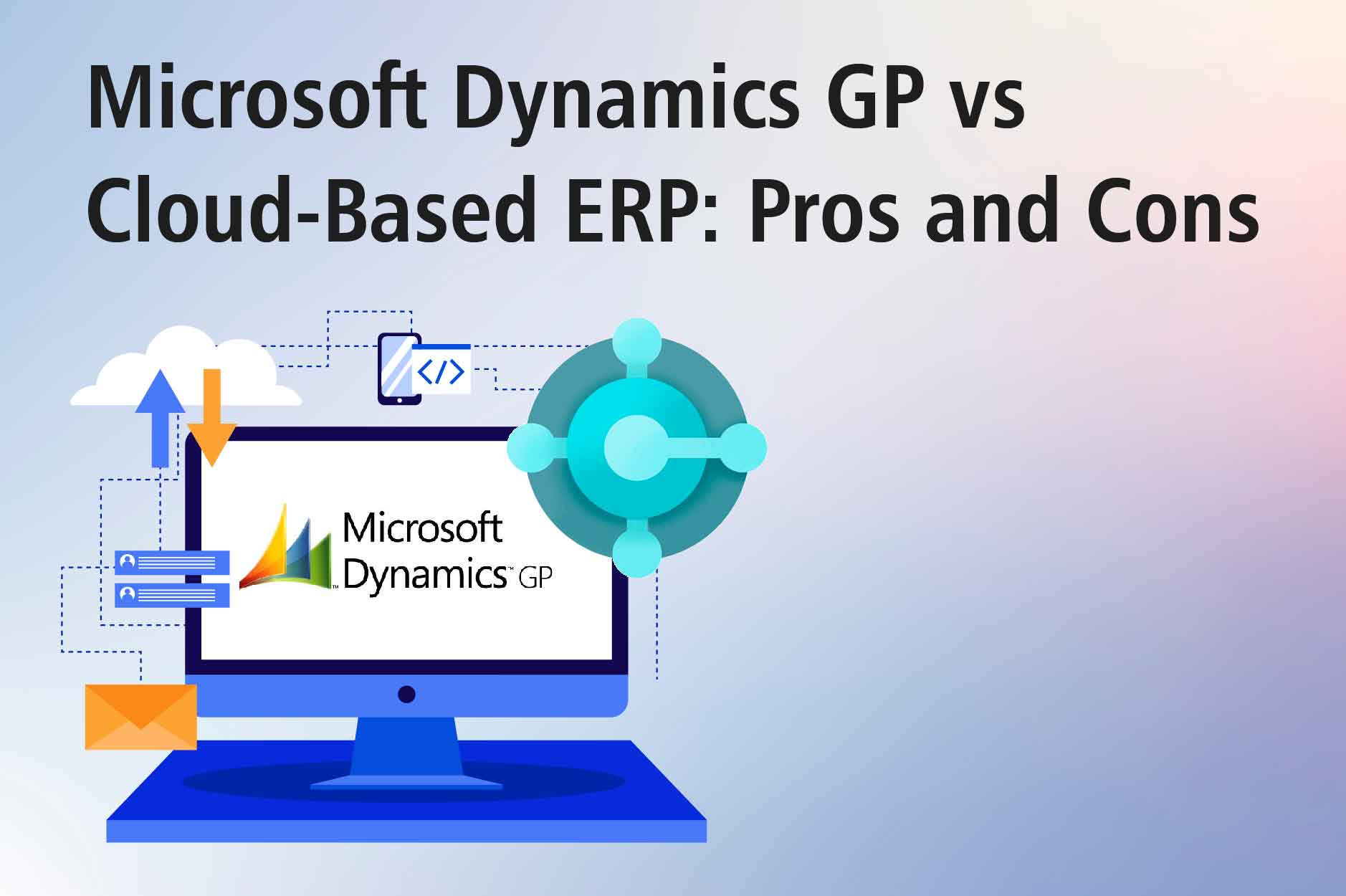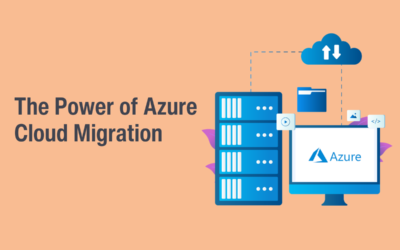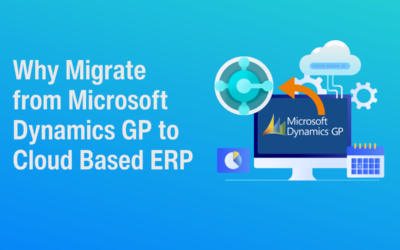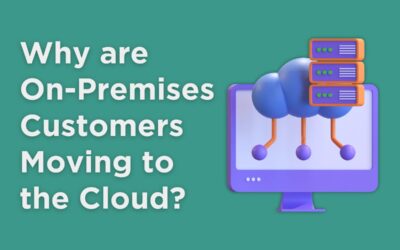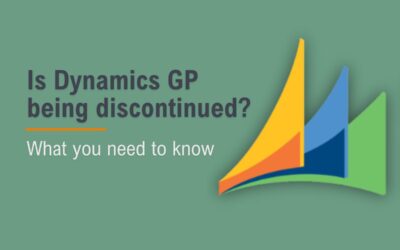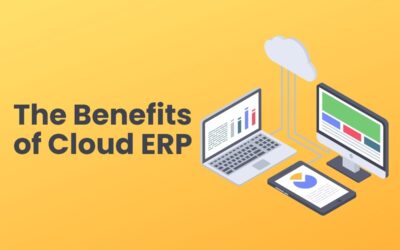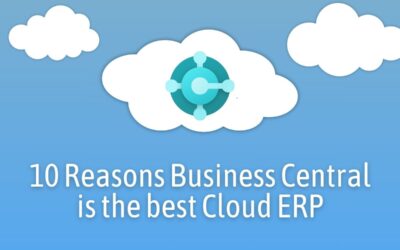Choosing the right ERP system is a pivotal decision for any business.
With technology evolving rapidly, organisations are often faced with a choice: stick with a trusted on-premise solution like Microsoft Dynamics GP — or embrace the flexibility and innovation of a cloud-based ERP.
Each option comes with unique benefits and challenges, and the decision can significantly impact operational efficiency, scalability, and costs.
This blog provides a balanced look at the Microsoft Dynamics GP vs Cloud ERP debate, exploring the benefits of cloud ERP over on-premise ERP, key considerations for migration, and what businesses should prioritise when making the transition.
Whether you’re evaluating ERP options for the first time or reassessing your current system, this guide will help you make an informed decision that supports your business’s goals.
Dynamics GP On-Premise vs Cloud: Key Differences
To choose the right ERP solution, it’s crucial to understand the fundamental differences between on-premise and cloud models.
Microsoft Dynamics GP (On-Premise ERP)
Dynamics GP is a widely recognised ERP system that has served businesses for decades. Its on-premise deployment model offers:
- Full control over data and infrastructure.
- Robust customisation capabilities.
- A predictable cost structure through perpetual licensing.
However, these benefits come with challenges such as high upfront costs, ongoing maintenance, and scalability limitations.
Cloud-Based ERP
Cloud ERP solutions, such as Microsoft Dynamics 365 Business Central, represent the next generation of ERP technology. Hosted by third-party providers, these systems offer:
- Lower initial investment and predictable subscription costs.
- Seamless updates and system enhancements managed by the vendor.
- Remote accessibility, ideal for businesses with distributed teams.
While cloud systems bring unmatched flexibility, they can also raise questions about data security, internet dependency, and vendor lock-in.
Microsoft Dynamics GP: Pros and Cons
Before considering a migration, let’s examine the strengths and weaknesses of Dynamics GP as an on-premise ERP.
Pros of Dynamics GP
- Customisation: Tailor the system to meet specific business needs.
- Data Control: All data resides on your own servers, ensuring complete ownership.
- Proven Reliability: Trusted by thousands of organisations worldwide.
- Perpetual Licensing: Avoid recurring subscription fees.
- Integration with Microsoft Tools: Seamlessly works with Office 365, Power BI, and other Microsoft applications.
Cons of Dynamics GP
- Costly Upfront Investment: Deployment requires significant hardware and infrastructure investment.
- Limited Remote Access: Without additional configurations, access outside the office can be challenging.
- Maintenance Responsibilities: Requires internal IT teams for updates, security, and troubleshooting.
- Scalability Constraints: Expanding capabilities may necessitate costly hardware upgrades.
- Future Uncertainty: Microsoft’s focus on cloud ERP raises concerns about long-term support for GP.
Benefits of Cloud ERP Over On-Premise ERP
Many organisations are embracing cloud ERP solutions due to their flexibility and efficiency. Here’s why.
Advantages of Cloud ERP
- Scalability: Add or reduce users and capabilities as your business grows.
- Remote Work Enablement: Access the system anytime, anywhere with internet connectivity.
- Lower IT Overheads: The vendor manages updates, maintenance, and security.
- Quick Deployment: Implementation timelines are shorter compared to on-premise systems.
- Enhanced Security: Modern cloud systems often come with robust, enterprise-grade security measures.
Disadvantages of Cloud ERP
- Recurring Costs: Subscription fees may accumulate over time.
- Customisation Challenges: Cloud solutions may offer less flexibility in customisation.
- Connectivity Dependency: Operations are reliant on stable internet access.
- Data Sovereignty: Businesses must consider where data is stored and its compliance implications.
- Vendor Lock-In: Transitioning from one cloud provider to another can be costly and complex.
Compare GP & Cloud ERP
Understand the benefits and drawbacks of Dynamics GP and Cloud ERP.
Dynamics GP Migration to Cloud ERP: Key Considerations
With Microsoft prioritising its cloud ERP solutions like Dynamics 365 Business Central, many businesses are weighing the benefits of migrating. Key factors to consider include:
- Costs: While cloud ERP has lower upfront costs, compare cloud ERP cost vs Dynamics GP over several years to account for subscription fees.
- Scalability: Cloud ERP’s ability to scale efficiently provides a significant edge for businesses experiencing growth.
- Future-Proofing: Microsoft’s increasing focus on cloud-based solutions means that Dynamics GP on-premise vs cloud comparisons are likely to shift further in favour of the cloud.
- Migration Path: Solutions like Business Central provide a clear and feature-rich upgrade path for Dynamics GP users, offering robust functionalities for finance, supply chain, and operations management.
Why Dynamics 365 Business Central Is the Next Step
For businesses looking to transition from Dynamics GP — Business Central offers a modern, cloud-based ERP that balances flexibility, scalability, and cost-effectiveness.
Designed for growing organisations, Business Central integrates seamlessly with the wider Microsoft ecosystem, enabling enhanced collaboration and insights.
Key features include:
- Streamlined migration tools to transition data from Dynamics GP.
- Industry-specific functionalities and customisation options.
- Regular updates and ongoing support directly from Microsoft.
Make the Right ERP Choice
Selecting between Microsoft Dynamics GP vs Cloud ERP is a critical decision that can shape the future of your organisation.
While Dynamics GP offers stability and customisation, cloud ERP scalability benefits and cost-efficiency make it a compelling choice for forward-thinking businesses.
For those already using Dynamics GP, transitioning to a solution like Dynamics 365 Business Central ensures a seamless shift to a modern, cloud-based ERP with long-term support.
At Mercurius IT, we’ve worked extensively with businesses transitioning to the cloud, particularly with Dynamics 365 solutions. Our services includes a tailored GP-to-Business Central migration offer that simplifies the process and ensures minimal disruption to your operations.
If you’re ready to modernise your ERP system or want to explore your options, contact us today using the contact form below.

